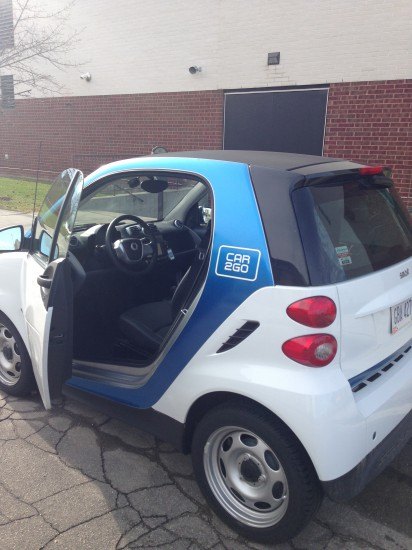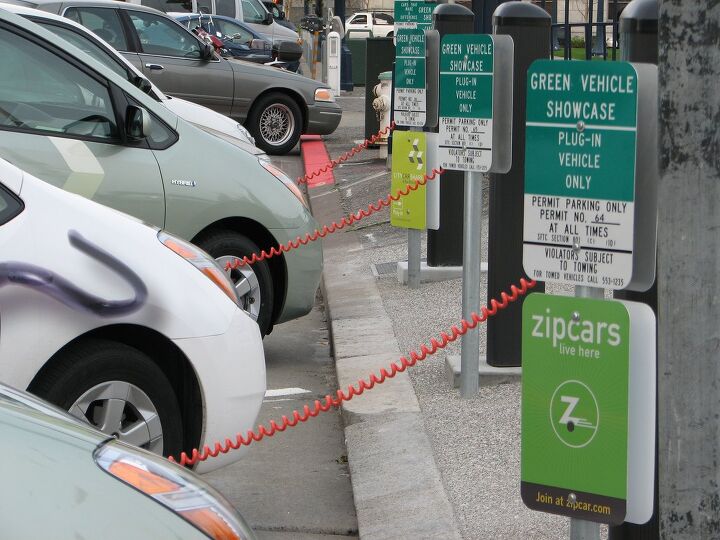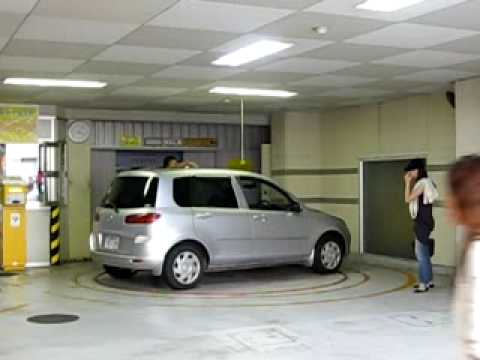#Carsharing
AlixPartners Study: Every Car Shared Means 32 Lost Sales
According to a report from consulting firm AlixPartners, each and every car in the Zipcar or car2go car-sharing fleets means 32 lost vehicle sales. Based on a survey of 2,000 adults in 10 major cities who use car-sharing services, the report says that Americans would have bought an additional half million new or used cars and light trucks since 2006 if they did not have access to those services. That figure is expected to grow to 1.2 million by the end of the decade.
Review: Car2go Smart
There’s a new car sharing program in Columbus, Ohio called car2go (not capitalized). For $0.38/minute, smart cars are available for rent – fuel and insurance are included. They can be driven anywhere, but they have to be returned to a public parking space within the designated “home area”. The Columbus home area is essentially downtown, the immediately adjacent suburbs, and the Ohio State University campus. I am fortunate enough to live in the home area and for the past several weeks I have been tempted by a car-nu-co-pia of car2gos (cars2go?) smart cars parked everywhere.
Peer-to-peer Car Sharing Services Found Lacking in Substantial Liability Coverage
In cities where owning a car can be a pain (New York, Boston, Seattle), drivers are opting instead to share vehicles with other drivers, with companies such as ZipCar, Car2Go, RelayRides et al offering their services to help the public get around. All anyone needs beyond the basics is a subscription to the car-sharing service, a reservation, and a drop-off location when they are finished with their errands. Even big-name rental car companies like Enterprise and Hertz are jumping into the new business model for a test drive, Avis having gone the farthest by purchasing ZipCar in January of 2013.
However, the insurance offered by these peer-to-peer rental companies might not all that it’s cracked up to be, with severe consequences should anything remotely catastrophic occur.
The Worst Drivers Are In ZipCars
I recently yelled at another driver. I know, I know: this is bad behavior. It’s even worse because I have a Range Rover, which makes you look like a total prick when you’re yelling at someone else on the road. Or, you could remove “when you’re yelling at someone else on the road” and that sentence would still be true.
Avis Budget Group Buys Zipcar For $500 Million
Zipcar, the leading player in car sharing in North America, is about to be acquired by Avis Budget Group for $500 million in cash. The rental car firm will pay $12.25 per share, a whopping 49 percent premium relative to Zipcar’s closing price on December 31st.
The Worst New Car I've Driven So Far
Being asked “what car should I buy?” occurs on a weekly basis for me, but I’d rather field that question every day than listen to the recieved wisdom of a magazine racer just once more in my life. The most recent inquiry came from my Uncle Maurice, a kind and generous man who provided my brother and me with a near bottomless supply of Swiss Army knives when we were children.
Rent Out Your Car Via Onstar
Onstar may have been pressured by privacy activists into dropping changes to its terms of service, but the telematics service is still betting that people want to be more connected than ever. So much so that it’s going offer a service allowing you to rent your car out to strangers.
2 BR, LDR, EIK, Your Choice Of Prius Plug-in Hybrid, Or IQ EV
In the market to buy a condo in Tokyo? If you buy the right one, it will come with a car. Starting in spring 2012, Toyota plans to launch a condominium-based car-sharing program in collaboration with Japanese real estate developers.
Are You Ready For: Peer-To-Peer Car Rentals?
With car sharing on the rise, my home state of Oregon is moving towards changing insurance rules to allow private “peer to peer” rentals by auto owners. The Oregonian reports that HB 3149 is headed for the Governor’s desk, having been approved by the state House and Senate. Sponsor Rep Ben Cannon explains
Most insurance policies prohibit people from using their cars for commercial purposes. This bill says someone can participate in car sharing without having to worry that their insurance will be canceled.
California is the only other state to have passed such legislation, and already Facebook-based peer-to-peer car rental firms like Getaround have popped up to fill the demand. With average car ownership costs reaching $8,000 per year according to the AAA, Cannon argues that research showing that cars sit parked for 90% of their lives proves the need for more car-sharing flexibility. And established car-sharing firms like Zipcar, which operate their own fleets don’t feel threatened by the bill, as they are not expanding beyond urban cores and as Zipcar’s CEO puts it, peer-to-peer rentals validate the car-sharing model. But would you rent your car to a stranger?
Not Buying A Car Looks Better By The Minute
Forget two or three year leases. Daimler will rent you cars by the minute and “is stealing customers from Mazda and Fiat with rentals aimed at drivers ready to forgo auto ownership,” reports Businessweek.
Emboldened by the successes of Zipcar and other short term rental or car sharing ventures, Daimler is test marketing its Car2go service Austin, TX, and Ulm, Germany. Soon to follow: Hamburg, Germany, in early in 2011, and dozens more cities in Europe and North America. Car2go rents Smart cars by the minute. Other carmakers, such as BMW and PSA want to develop similar services.






















Recent Comments